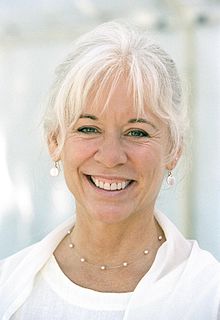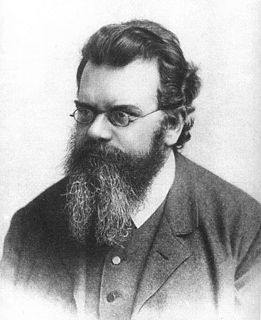A Quote by Adi Shankara
There is sorrow in finitude. The Self is beyond time, space and objects. It is infinite and hence of the nature of absolute happiness.
Related Quotes
Every living being longs always to be happy, untainted by sorrow; and everyone has the greatest love for himself, which is solely due to the fact that happiness is his real nature. Hence, in order to realize that inherent and untainted happiness, which indeed he daily experiences when the mind is subdued in deep sleep, it is essential that he should know himself. For obtaining such knowledge the inquiry 'Who am I?' in quest of the Self is the best means.
When the sacred manifests itself in any hierophany, there is not only a break in the homogeneity of space; there is also a revelation of an absolute reality, opposed to the nonreality of the vast surrounding expanse. The manifestation of the sacred ontologically founds the world. In the homogenous and infinite expanse, in which no point of reference is possible and hence no orientation can be established, the hierophany reveals an absolute fixed point, a center.
True, absolute silence and true, absolute love are not different. Absolute silent awareness overflows with simple, fulfilled absolute love. Objects - people, nature, emotions - may or may not appear. Objects are not needed and they are welcomed. The joy of this full silence is uncaused and unlimited. Always here, always discovering itself. It is the treasure, and it is hidden only when we refuse to keep quiet and find out who we are.
The most ordinary things are to philosophy a source of insoluble puzzles. With infinite ingenuity it constructs a concept of space or time and then finds it absolutely impossible that there be objects in this space or that processes occur during this time . . . the source of this kind of logic lies in excessive confidence in the so-called laws of thought.
ought we not, from time to time, open ourselves up to cosmic sadness? ... Give your sorrow all the space and shelter in yourself that is its due, for if everyone bears his grief honestly and courageously, the sorrow that now fills the world will abate. But if you do not clear a decent shelter for your sorrow, and instead reserve most of the space inside you for hatred and thoughts of revenge-from which new sorrows will be born for others-then sorrow will never cease in this world and will multiply.
There is this unbounded, infinite, eternal, level, ocean, within every human being. Inner happiness comes with consciousness, bliss, intelligence comes with it. Creativity, love.
Human beings have a potential and it has names like enlightenment or fulfilment, or liberation.
True happiness is not out there, true happiness lies within.
They say beauty is only skin deep but it's this stuff coming from the inside, absolute vibrant consciousness, absolute bliss
The difference between shallow happiness and a deep, sustaining joy is sorrow. Happiness lives where sorrow is not. When sorrow arrives, happiness dies. It can't stand pain. Joy, on the other hand, rises from sorrow and therefore can withstand all grief. Joy, by the grace of God, is the transfiguration of suffering into endurance, and of endurance into character, and of character into hope--and the hope that has become our joy does not (as happiness must for those who depend up on it) disappoint us.
There are similarities between absolute power and absolute faith: a demand for absolute obedience, a readiness to attempt the impossible, a bias for simple solutionsto cut the knot rather than unravel it, the viewing of compromise as surrender. Both absolute power and absolute faith are instruments of dehumanization. Hence, absolute faith corrupts as absolutely as absolute power.








































